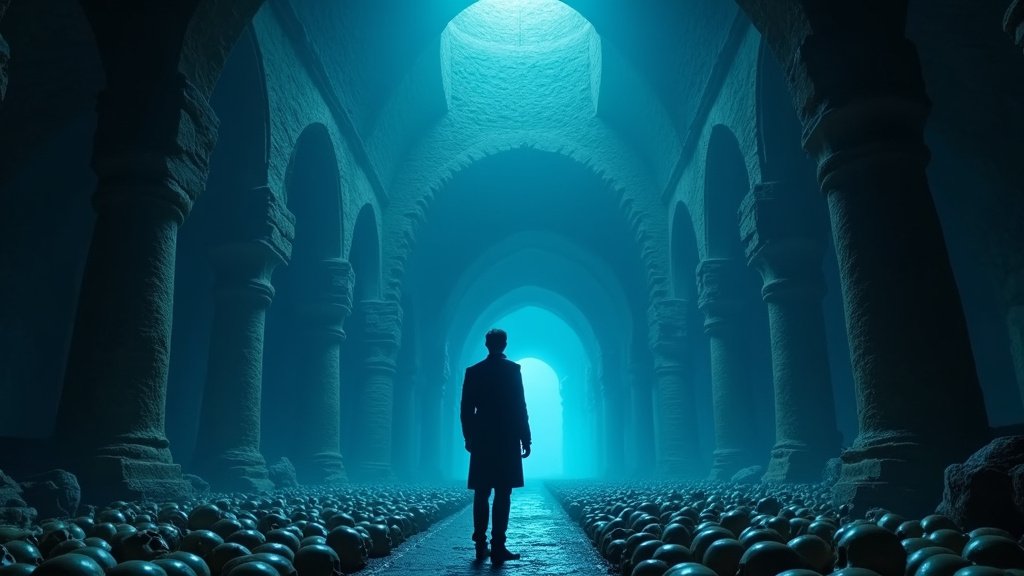For over five decades, Planet of the Apes has fascinated and enthralled audiences with its powerful mix of action, social commentary, and futuristic storytelling. From its iconic 1968 origin to the more recent reboot trilogy that concluded with War for the Planet of the Apes in 2017, the franchise has earned its place as one of the most ambitious sci-fi series ever. Enter 2024’s Kingdom of the Planet of the Apes, the highly anticipated next chapter, which delivers a fresh take on the classic narrative while staying true to the franchise’s roots.
But the real question is: Does this new entry live up to the towering expectations set by its predecessors? Or does it falter under the weight of its rich history? Spoiler-free and in-depth, this review dives into every aspect of Kingdom of the Planet of the Apes and explores why it could very well be the best installment of the series yet.
A Bold New Era
Set several years after the events of War for the Planet of the Apes, Kingdom of the Planet of the Apes takes place in a world where apes have fully taken over, and humans are on the brink of extinction. The film introduces an entirely new generation of ape leaders, all shaped by the previous wars that have ravaged their species. Caesar’s legacy looms large over this new society, and his mythic status is felt in every corner of the film. However, instead of relying solely on nostalgia, this installment breaks new ground, expanding the Apes universe in ways never before imagined.
The kingdom of the apes is not a homogenous society but a fractured and complex world where different tribes of apes vie for power. The audience is introduced to new factions, each with its own ideology and vision for the future of the ape race. This complexity adds layers to the plot, as we see conflicts not only between apes and humans but also within the ape world itself.
The film’s world-building is nothing short of spectacular. Directors and writers have taken great care to craft an ecosystem where apes dominate both the political and natural landscape. The expansive jungle kingdoms, crumbling human cities reclaimed by nature, and advanced ape settlements make for a visually stunning setting that feels lived-in and believable. Every scene breathes life into this dystopian future, drawing audiences deeper into the world.
Characters that Challenge Expectations
One of the strongest elements of Kingdom of the Planet of the Apes is its characters. While the focus remains on the apes, the film doesn’t shy away from introducing complex human characters who serve as more than just victims or villains. These humans, often enslaved or hiding in small, underground communities, offer a stark contrast to the ever-advancing ape civilization. The film humanizes them in unexpected ways, showing their desperation, resilience, and fight for survival in a world that has passed them by.
Yet, it is the apes that steal the show, particularly the new leaders that rise in Caesar’s absence. The filmmakers have crafted fascinating and multidimensional characters that break free from traditional archetypes. There’s no simple dichotomy of good vs. evil here; each leader grapples with their own ambitions, fears, and sense of duty. Some apes are bent on creating a peaceful, utopian society, while others believe in militaristic control, seeing humans as a continued threat to their survival. This tension leads to some of the most engaging political drama the series has ever seen.
The standout performance comes from the character of Tiberius, a hardened and war-weary gorilla who has become a leader by force, not by choice. His internal struggle is palpable as he grapples with maintaining peace while harboring his deep-seated distrust of humans. His journey is as much about personal redemption as it is about securing the future of his kind. Meanwhile, Nova, a human character whose arc began in War for the Planet of the Apes, returns as a symbol of hope and bridge between species. Her interactions with the apes are emotionally charged and often highlight the tension between compassion and survival.
Visual Mastery and Evolution of CGI
If there’s one area where Kingdom of the Planet of the Apes excels beyond its predecessors, it’s in the visual department. The film’s CGI is nothing short of breathtaking, with advancements in motion capture technology allowing for even more nuanced and lifelike performances from the ape characters. Andy Serkis may have set the standard for motion capture in the previous trilogy, but the actors here take it to another level. Every facial twitch, every subtle gesture, and every roar feels grounded and real.
The landscapes and environments are also meticulously crafted, creating a post-apocalyptic world that is both awe-inspiring and terrifying. Gone are the desolate, war-torn battlegrounds of the previous films; instead, we see an Earth that has begun to heal, though not in the way humans had hoped. Ruins of human cities now serve as nests for apes, and the natural world has reclaimed what was once lost. The film’s visual storytelling is immersive, making the audience feel as though they are truly walking through this new world.
What sets Kingdom apart visually from other CGI-heavy blockbusters is its restraint. The filmmakers understand the balance between spectacle and narrative, using CGI not as a crutch but as a tool to enhance the story. Whether it’s a massive battle scene or a quiet moment of reflection between characters, the special effects always serve the story, never overshadowing it.
Thematic Depth: A Reflection on Power and Legacy
Planet of the Apes has always been more than just a sci-fi action series. It’s a deeply philosophical exploration of humanity’s self-destruction, animal rights, and the cyclical nature of violence. Kingdom of the Planet of the Apes continues this tradition, but with a sharper focus on the idea of legacy and power.
The film asks difficult questions about leadership: What kind of society are the apes trying to build? Can a civilization born out of violence ever truly find peace? And most importantly, is it possible to break free from the cycles of war and domination that have defined both human and ape history?
Caesar’s shadow looms large over this film, and much of the narrative revolves around the characters’ struggle to either uphold or break away from his ideals. There is a sense that this new generation of apes is caught between the past and the future, unsure of which path to take. This struggle mirrors the human dilemma in the film as well, with survivors questioning whether they should try to coexist with the apes or fight for their own survival at any cost.
The allegories to real-world issues are hard to miss. As the apes build their new world, the film reflects on the dangers of unchecked power, the price of peace, and the moral complexities that come with leadership. In many ways, Kingdom of the Planet of the Apes is a mirror held up to our own society, asking us to consider how we deal with our own histories of violence, oppression, and environmental destruction.
Action and Pacing: A Fine Balance
For those who come to the Planet of the Apes franchise expecting action, Kingdom does not disappoint. However, the film strikes a careful balance between high-octane battle sequences and slower, character-driven moments. The battles are grander in scale than ever before, with new weapons, tactics, and strategies employed by both humans and apes. Yet, every battle serves a purpose beyond spectacle, often driving home the emotional stakes of the story.
The pacing is deliberate but never slow. The film takes its time to build the tension between factions, allowing the audience to become invested in the characters’ struggles. When the action finally hits, it feels earned, making every explosion, punch, and confrontation all the more impactful.
Conclusion: A Triumph for the Franchise
In the end, Kingdom of the Planet of the Apes does what few sequels manage to achieve—it surpasses expectations. By expanding the world and adding new layers of complexity to its characters and storylines, this film breathes new life into a franchise that many thought had already reached its peak. The combination of stunning visuals, philosophical depth, and emotionally resonant performances ensures that Kingdom will not only satisfy long-time fans but also attract new ones.
As the film closes with an emotionally charged and thought-provoking finale, it’s clear that Kingdom of the Planet of the Apes is not just a continuation of the series—it’s a new beginning. Whether or not this is the best Planet of the Apes movie yet is a debate that will rage on, but one thing is certain: it’s a stunning achievement in modern cinema that sets a new bar for the franchise and the genre at large.
If you’re a fan of science fiction that challenges your mind while keeping you on the edge of your seat, Kingdom of the Planet of the Apes is a must-see.





